Deck & Commander Strategies

Mishra, Claimed by Gix
Focuses on attacking with multiple creatures to trigger life drain and gain, with a key meld combo involving FX Dragon Engine that can immediately win the game when combined.
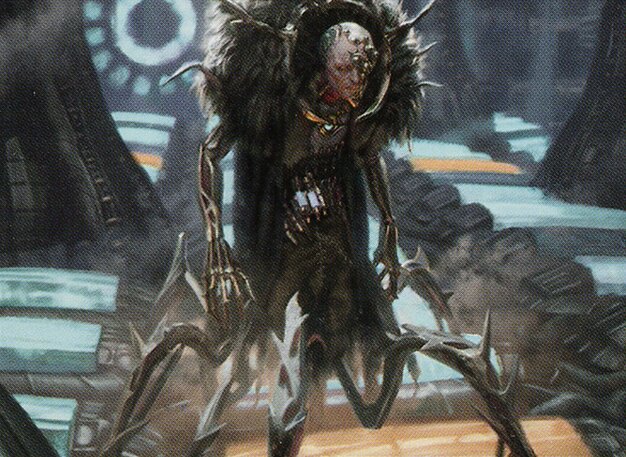
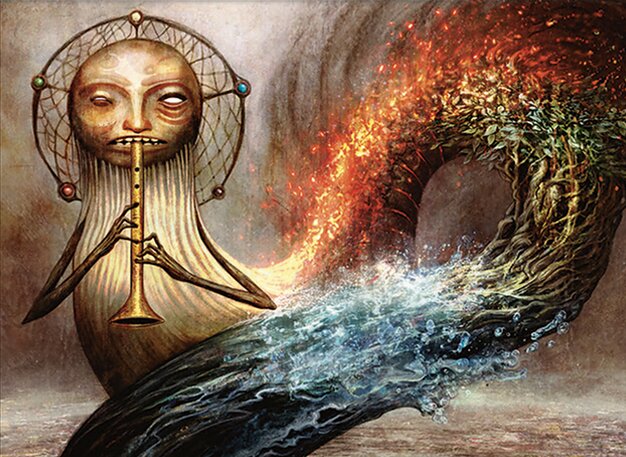
Keskit, the Flesh Sculptor / The Prismatic Piper
Utilizes goblin tribal synergies and sacrifice outlets to draw cards and maintain board presence, leveraging artifact and creature sacrifices to filter and refill the hand.

Kaervek the Merciless
Punishes opponents for casting spells by dealing damage equal to their mana value, forcing opponents to play cautiously and enabling a group slug win condition.

Deadpool, Trading Card
Focuses on copying itself multiple times and using graveyard recursion to create a resilient board state, while disrupting opponents by swapping text boxes and draining life.
Gameplay Insights
- 1
The use of Impact Tremors early set up a steady stream of damage that pressured all players and shaped early board interactions.
- 2
Pyrostatic Pillar was a strategic choice to punish low-cost spells, effectively slowing down token-heavy strategies like the goblins deck.
- 3
Deadpool's ability to swap text boxes with other creatures created unique disruption opportunities, complicating opponents' plans.
- 4
Mishra's meld combo served as a constant looming threat, incentivizing opponents to disrupt his board to prevent an instant win.
- 5
Sacrifice synergy with Keskit allowed for efficient card filtering but required careful board development to avoid running out of creatures to sacrifice.
Notable Cards
-
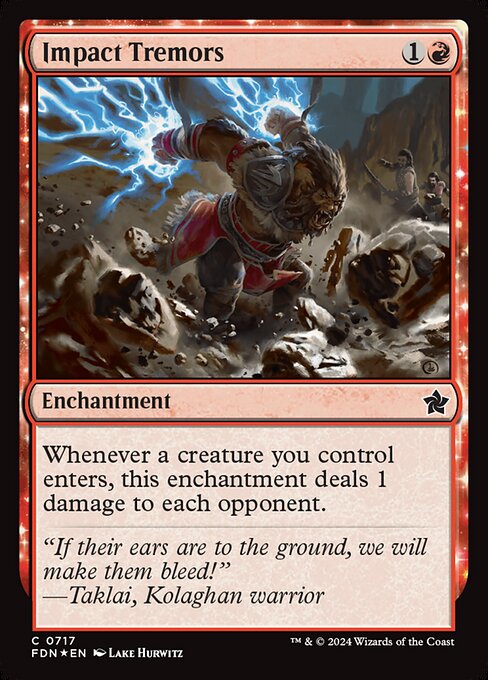
Impact Tremors
-
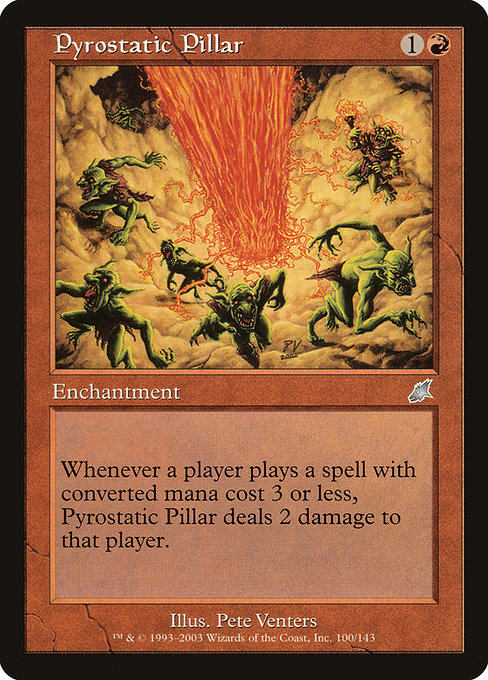
Pyrostatic Pillar
-
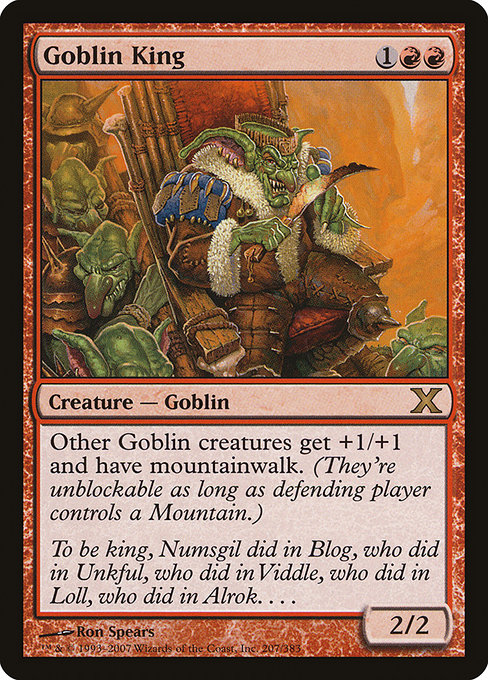
Goblin King
-

Bloodfell Caves
-

Smoldering Marsh
Gameplay Summary
The game featured a chaotic four-player Rakdos-themed Commander match with unconventional and spicy commanders.
Early turns focused on ramp and board development, with each player setting up their unique strategies.
The Prismatic Piper and Keskit deck aimed to leverage goblin tokens and Sacrifice synergies to generate card advantage, while Kaervek the Merciless focused on punishing opponents with damage whenever they cast spells.
Mishra, Claimed by Gix was built around a meld combo that could potentially win the game by melding Mishra with FX Dragon Engine, and Deadpool's deck centered on copying and recursion effects to overwhelm the board and disrupt opponents. Key plays included the casting of Impact Tremors to chip away at opponents each time creatures entered the battlefield, and the use of cards like Pyrostatic Pillar to punish low-cost spell casting, which slowed down goblin token generation.
Mishra's meld threat loomed as a win condition, while Deadpool aimed to copy itself multiple times for value and to control the board with its disruptive text box swapping effect.
The game developed into a tense interaction of group slug damage and strategic sacrifices, with each player trying to leverage their deck's unique strengths while managing the threats posed by others.


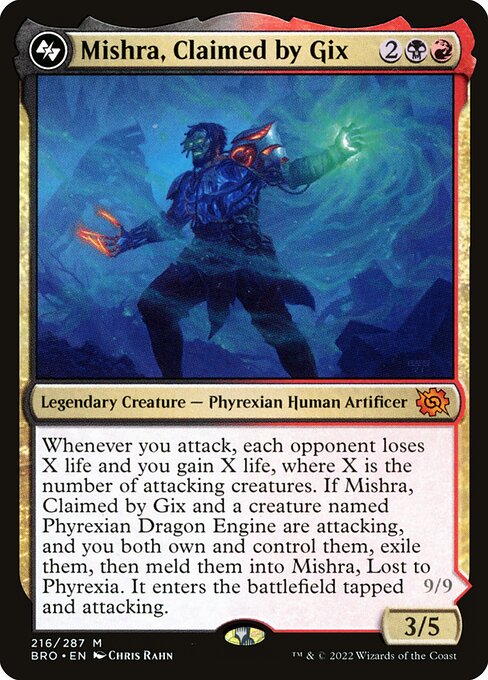


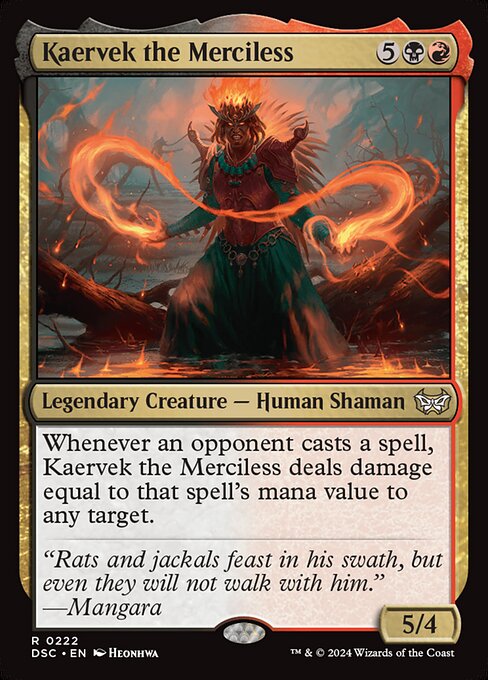











![The Brothers' War 2: Bro Off [Commander VS 318] | Magic: the Gathering Gameplay thumbnail](https://i.ytimg.com/vi/__p8kMk2rSY/sddefault.jpg)



![Titania vs Urza vs Tawnos vs Mishra [EDH/Commander, Magic The Gathering Gameplay 2022] thumbnail](https://i.ytimg.com/vi/eN4y2tNemTM/sddefault.jpg)






































